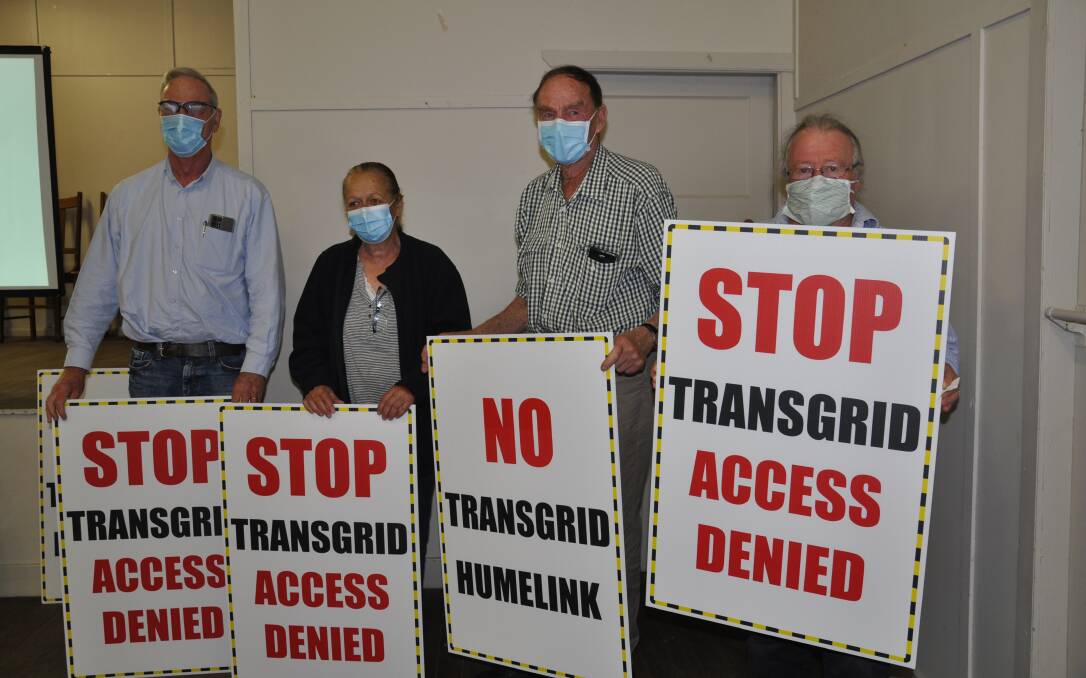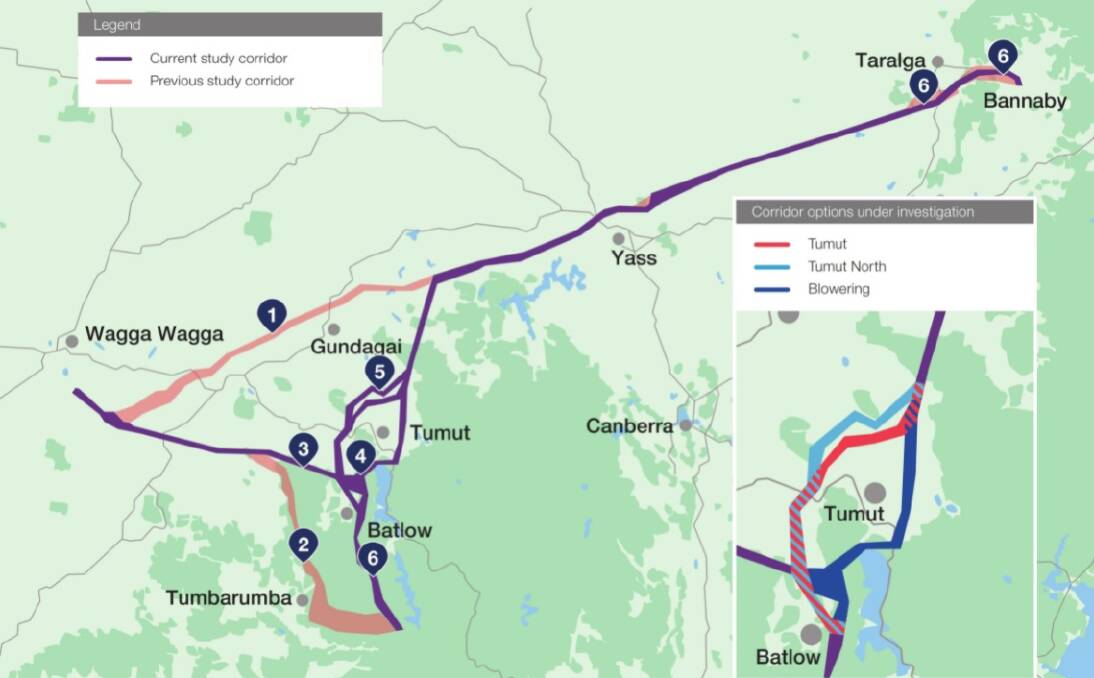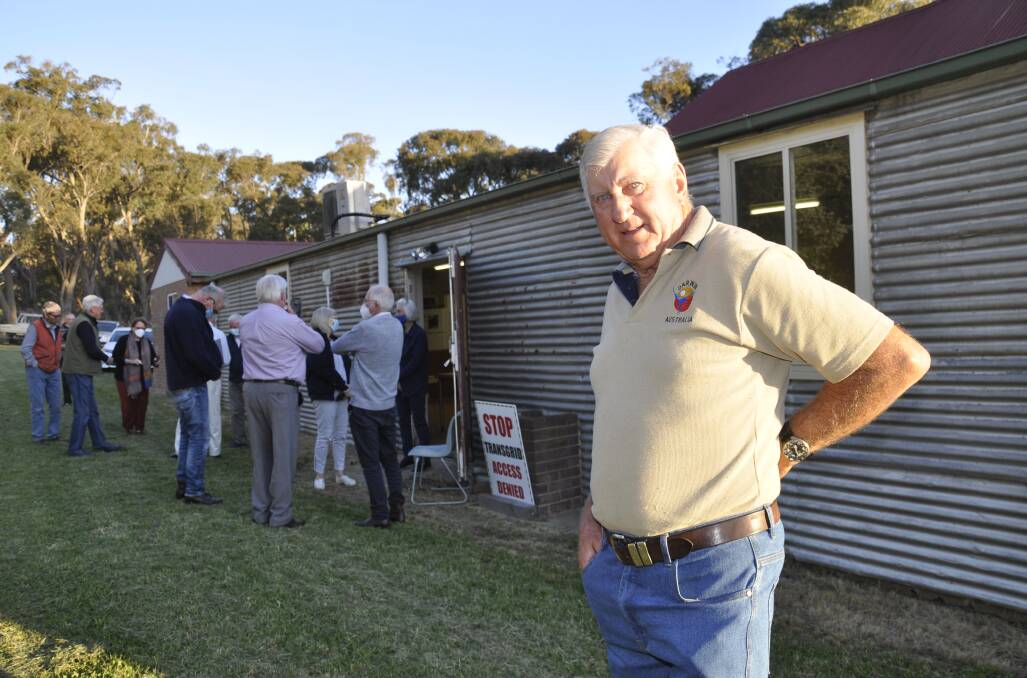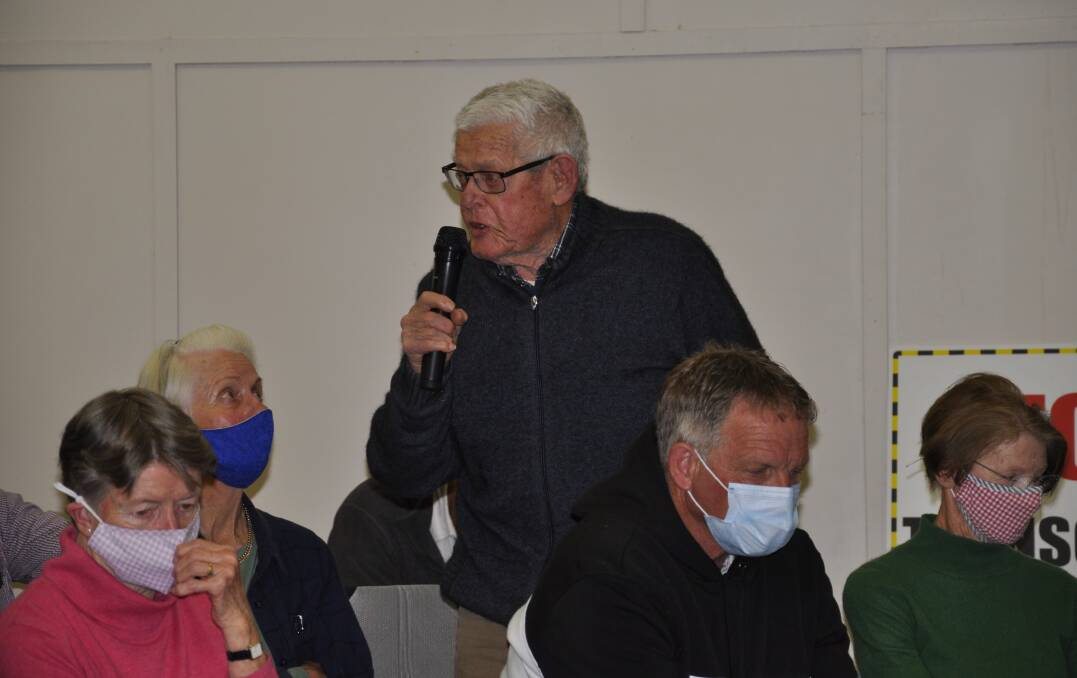Lindsay Brewer had only just bought his house and property at Dalton when TransGrid representatives came knocking.
Subscribe now for unlimited access.
or signup to continue reading
They explained that a large transmission line, dubbed HumeLink, could pass through his 144-hectare Rugby Road grazing enterprise.
"It was eight days after I bought it and they said there was a good chance the house would go if the line went ahead," he told The Post.
"It's bloody madness...It's like a smack in the mouth and I think TransGrid slowly kill you by telling you all this stuff. The worry is the worst thing."
READ MORE:
Mr Brewer was one of 93 people who attended a meeting convened by action group, HumeLink Alliance Inc at Grabben Gullen hall on Monday night.
Organisers were pleased with the larger than expected attendance; people came from the district, Taralga, Goulburn, Yass, Wagga and other areas affected by TransGrid's proposed project.
The company is aiming to build a 360km long 500 kilovolt transmission line connecting Maragle, Wagga Wagga and Bannaby, near Taralga. The $2.4 billion state significant project is designed to draw more renewables into the market, better harness the Snowy 2 scheme and provide "reliable and affordable electricity," TransGrid says.

But Tuesday's meeting unanimously resolved to call for a "serious re-evaluation of the scheme" given "the damage to the district" and the availability of "less invasive alternatives."
Attendants also wanted an overhaul of the Just Terms 1991 legislation, bringing it in line with "more contemporary standards."
The resolutions will be taken to government.
On the night, the Alliance kicked off its $55,000 fundraising campaign for an independent review of undergrounding the transmission line. It hopes to raise the money in two weeks and commission an experienced consultancy to do the study.
Former economist and group member, Andrea Strong has explored the underground option and rebutted many of TransGrid's claims it was not feasible. She previously worked in electricity reform for NSW Treasury and has a science degree.
"Given that the biggest impact is visual, it is astounding that none of TransGrid's brochures show images of the 500kV line. It is a major failure of communication," Ms Strong said.

She told the meeting that at 65 metres, the towers were "enormous" and almost twice the height of the existing 330kV ones that carried six transmission lines.
An Australian Energy Market Operator report in May had also proposed two more transmission lines between Wagga and Bannaby in future.
'It's bigger than Upper Lachlan': Kensit
Landowners and others fear the landscape, already host to wind farms, will be industrialised.
Upper Lachlan Shire councillor Pam Kensit said it would impact the entire area.
"We've worked hard to become an optimum spot," she said.
"...If this goes ahead we may as well let all that go. It's a bigger issue than just Upper Lachlan because it will destroy our environment."
Ms Strong said undergrounding would have far less effect on environment, amenity, lifestyle, agriculture, property values, regional development and tourism. In addition, it would substantially reduce bushfire risk, narrow the 140-metre easement and result in less electricity transmission loss.
TransGrid previously rejected this option but at a recent community consultative group meeting resolved to investigate.
The Alliance is worried it won't be objective and will be a "tick-a-box" exercise.
"It's important we continue with an independent study," Ms Strong said.
Undergrounding was likely to cost $7.2 billion but split across nine million customers and a 50-year life it would mean just an extra $10.66 annually for each person.
This was a small price to pay compared to the cost to farmers and the region, Ms Strong argued.

Compensation under fire
Co-member and Bannister landowner Russell Erwin and others at the meeting criticised the level of compensation under the Just Terms Act.
"We are arguing that they are only taking the cost of construction, materials and the easement into account without considering the real economic, social and environmental costs," Mr Erwin said.
"We are being asked to bear this for the rest of NSW and it's not fair. The Just Terms compensation in no way reflects what will happen to us and our life's work."
Others at Tuesday's meeting felt the transmission line would substantially drop land values, particularly for rural subdivisions, on which farmers relied for their retirement.
A TransGrid spokeswoman said the company's compensation process was guided by the overall impact on a property.
"Many factors are considered when assessing compensation, so the amount paid to each landowner will vary," she said.
"For the majority of properties impacted by our projects TransGrid is able to reach a negotiated agreement with the landowner. However, we have also heard that some landowners are not satisfied with the compensation process. We are sharing this feedback with relevant stakeholders outside of Transgrid."

The meeting sparked lengthy debate. One man accused the company of a "gold plating" exercise at people's expense. He maintained the transmission would be obsolete in 20 years.
Another questioned who owned the easement at the end of the process.
The forum drew high profile attendance, including former banking industry executive, Michael Katz and wife Frederique. Some 3km of their Gurrundah cattle property, Clear Hills, would be affected by the transmission line.
Former federal attorney general, Tom Hughes AO QC, said TransGrid had not supplied enough information. He and wife, Christine, an active Alliance member, own Bannister Station.
Peter Crisp of The Crisp Galleries near Yass said the line would also cross his property and have a "colossal impact on stock and land values everywhere."
"Putting it underground would seem to be the best and logical thing for everyone," he said.
- For more information email humelinkalliance@hotmail.com
Do you have something to say about this issue? Send a letter to the editor. Click here for the Goulburn Post


